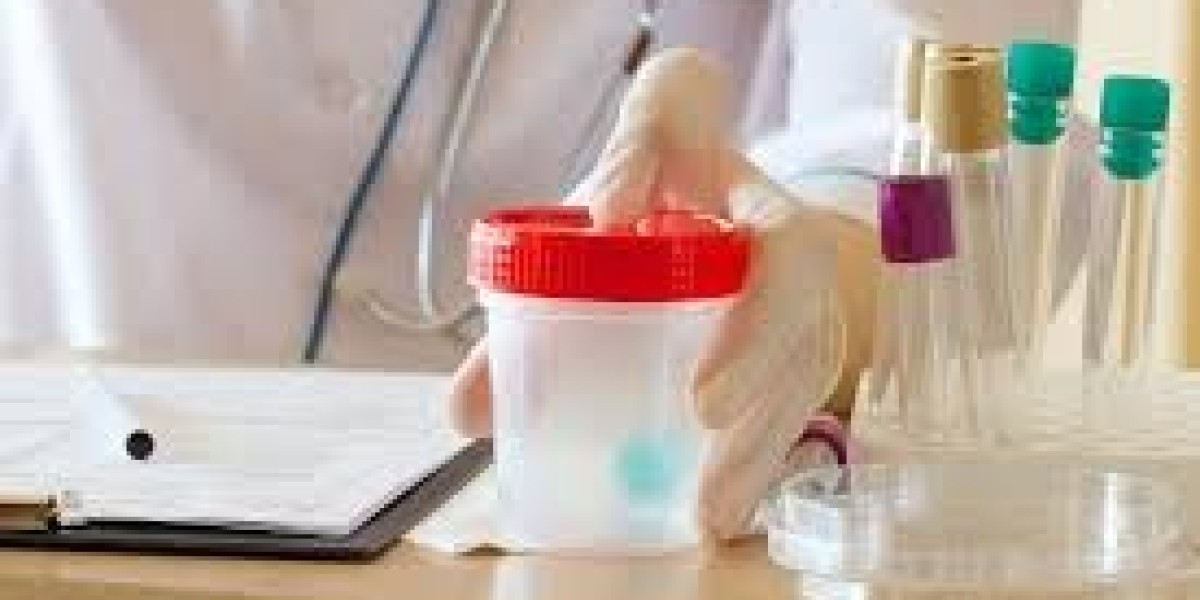Introduction to Specimen Collection
A basic step in medical diagnostics, specimen collection is essential to a precise diagnosis and course of treatment. At Clinfinite Solutions, we follow strict procedures to guarantee that specimens are correctly collected, handled, and transported, protecting their integrity. The concepts of specimen collecting are covered in full in this extensive guide, which also offers thorough insights into recommended techniques and procedures.
Types of Specimens Collected
Specimens vary widely depending on the diagnostic needs, and at Clinfinite Solutions, we specialize in collecting the following types:
Blood Samples
Numerous tests, such as blood glucose levels, metabolic panels, and complete blood counts (CBC), require blood samples. The most popular technique for drawing blood is venipuncture. To prevent contamination and guarantee accurate findings, proper methodology, and sterile equipment are essential.
Urine Samples
Diagnosing kidney function, urinary tract infections, and metabolic abnormalities is frequently accomplished by urine analysis. To reduce contamination, clean-catch midstream urine is the recommended approach. To maintain the integrity of the samples, patients are given comprehensive instructions.
Stool Samples
Stool specimens are gathered for investigations into parasites, occult blood tests, and stool cultures. To guarantee the appropriate collection and prevent sample deterioration, we give patients specialized containers and instructions.
Sputum Samples
Sputum collection is vital for diagnosing respiratory infections like tuberculosis. Early morning samples are usually preferred as they contain higher concentrations of bacteria.
Swab Samples
Swab samples, including throat, nasal, and wound swabs, are collected to detect the presence of pathogens. The swabs must be taken using aseptic techniques to prevent contamination.
Patient Preparation
The first step in collecting specimens effectively is to properly prepare the patient. To make sure that patients comprehend the procedure, its goal, and any necessary pre-operative measures, clear communication is crucial. Before the collection, patients could be required to fast, abstain from certain medications, or adhere to particular cleanliness guidelines. The possibility of sample contamination or deterioration, which could affect test results, is reduced during this preliminary stage.
Collection Techniques
The method of collection has a major impact on the specimen's integrity. Healthcare workers at Clinfinite Solutions are skilled in a range of methods appropriate for various specimen types, including tissue, blood, urine, and saliva samples. Following established protocols is essential. For instance, to avoid contamination or hemolysis during venipuncture for blood collection, sterile tools, appropriate tourniquet application, and precise needle positioning are necessary. In a similar vein, midstream collection of urine specimens may be necessary to prevent bacterial contamination.
Proper Labeling
Specimen labeling accuracy is another important principle. The type of specimen, the date and time of collection, and the patient's identification information must all be labeled on each specimen. This lowers the possibility of errors throughout the diagnostic process and guarantees traceability. To expedite this procedure and ensure accuracy, Clinfinite Solutions uses a strong labeling system that frequently includes barcodes and electronic records.
Transportation and Storage
Specimens must be transported and stored properly once they are gathered in order to maintain their integrity and stability. Different handling procedures are needed for different specimens. For instance, tissue biopsies may need to be fixed in formalin, yet blood samples frequently need to be refrigerated. Clinfinite Solutions uses temperature monitors, secure packaging, and insulated containers to ensure that all specimens are transported by regulatory standards and without deterioration.
Safety and Ethical Standards
It is crucial to follow safety and ethical guidelines when collecting specimens. Clinfinite Solutions' medical staff adheres to stringent procedures to safeguard patients and themselves against possible risks including infectious agent exposure. Important components of the procedure include wearing personal protective equipment (PPE), disposing of sharps properly, and following infection control guidelines. Furthermore, getting patients' informed permission is a basic ethical obligation. Patients' confidentiality must be scrupulously respected, and they must be informed about how their specimens will be used, stored, and disposed of.
Quality Control
Clinfinite Solutions incorporates ongoing quality assurance and control via their specimen collection procedure. Healthcare workers receive regular training, competency evaluations, and audits to guarantee they are knowledgeable about the most recent recommendations and industry best practices. By upholding rigorous standards for specimen handling and collection, this continuing education eventually improves the precision and dependability of diagnostic testing.
Conclusion
Clinfinite Solutions' specimen collection guidelines are created to maintain the greatest levels of patient care and diagnostic precision. Clinfinite Solutions makes sure that every specimen is handled with the highest care and integrity by carefully preparing patients, using exact collection techniques, labeling properly, securing specimens throughout transportation, and adhering to safety and ethical norms. These guidelines uphold confidence and trust while also improving the caliber of diagnostic services. that patients place in their healthcare providers. By prioritizing these foundational elements, Clinfinite Solutions continues to contribute significantly to effective patient diagnosis and treatment.








